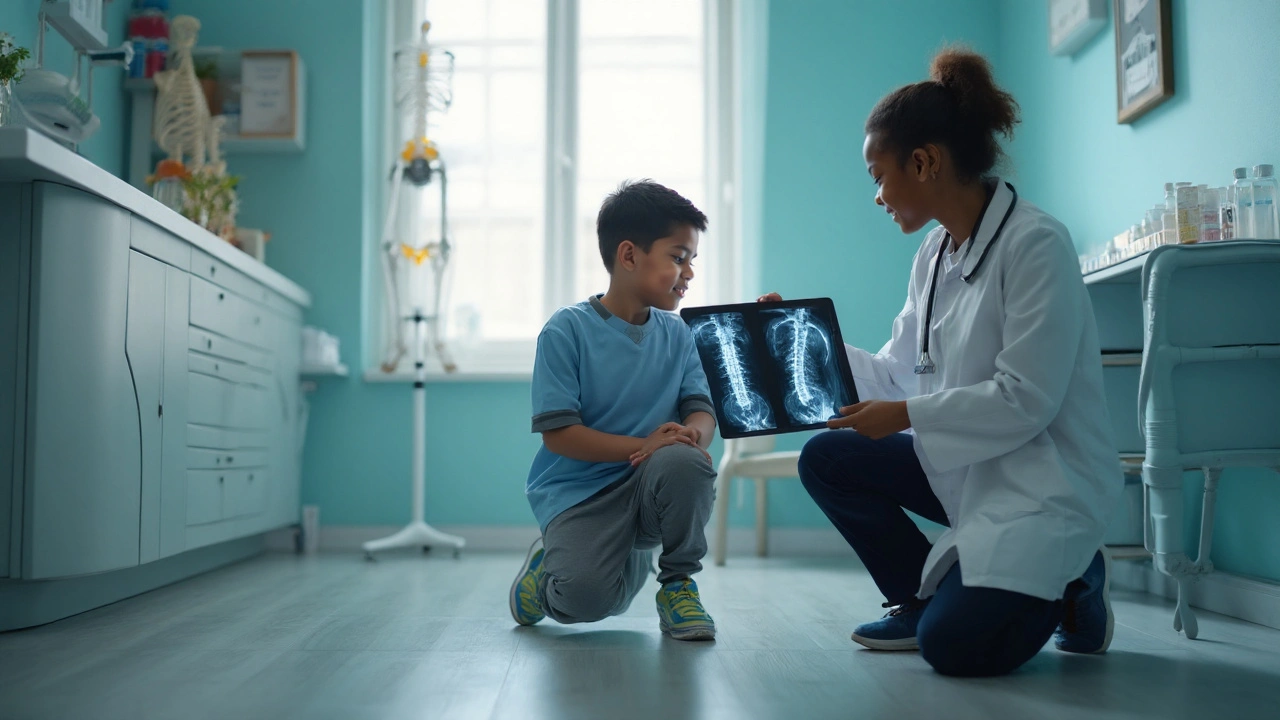
Juvenile Arthritis and Bone Health: Risks, Prevention, and Treatment
How juvenile arthritis affects growing bones, what to test, and daily steps to protect bone density-nutrition, exercise, meds, and monitoring that actually help.
5 Sep 2025If your child has juvenile idiopathic arthritis (JIA), you’ve probably heard the term “bone density” tossed around. It matters because weaker bones can lead to fractures and growth problems. This guide breaks down why JIA affects bone health and what you can do right now to keep those bones strong.
JIA is an inflammation of the joints that starts before age 16. The inflammation releases chemicals that mess with the cells that build bone. When those cells get confused, the skeleton doesn’t become as dense as it should.
On top of inflammation, many kids with JIA take steroids. Steroids calm the immune system but also tell bone‑building cells to slow down. Combine that with less active play because of joint pain, and the bones lose precious mass.
Other risk factors include low vitamin D levels, poor nutrition, and a family history of osteoporosis. All these things stack up, making it easier for a child with JIA to develop low bone density.
First, get a baseline measurement. Doctors use a DEXA scan to see how much mineral is in the bones. It’s quick, painless, and gives you a clear picture of where you stand.
Talk to your rheumatologist about steroid‑sparing options. Modern biologic medicines can control inflammation without the bone‑weakening side effects of steroids.
Nutrition is a big player. Aim for at least 1,300 mg of calcium a day – think milk, yogurt, and leafy greens. Pair it with vitamin D, either from sunlight, fortified foods, or a supplement, to help the body absorb calcium.
Weight‑bearing exercise is non‑negotiable. Activities like walking, dancing, or jumping rope force the bones to work harder, which makes them denser. Even short, daily sessions of 15–20 minutes can add up.
Don’t forget resistance training. Light dumbbells, resistance bands, or body‑weight moves like squats help the muscles pull on the bones, prompting them to strengthen.
Stay on top of regular check‑ups. Your doctor can repeat the DEXA scan every 1–2 years to see if the bone density is improving or needs more attention.
Encourage good sleep habits. Growth hormone, released during deep sleep, plays a role in bone growth. Aim for 9–11 hours per night for kids and teens.
Hydration matters too. Water supports the fluid around joints and helps nutrients travel to bone cells. Keep a water bottle handy throughout the day.
If fractures happen often, or if your child complains of bone pain, bring it up right away. Early intervention can prevent long‑term problems.
Finally, keep a positive mindset. Managing JIA and bone health can feel overwhelming, but small daily steps add up. Celebrate each active day, each nutritious meal, and each doctor visit that shows progress.
By understanding why JIA can weaken bones and following these practical tips, you give your child the best chance to grow strong and stay active for years to come.

How juvenile arthritis affects growing bones, what to test, and daily steps to protect bone density-nutrition, exercise, meds, and monitoring that actually help.
5 Sep 2025